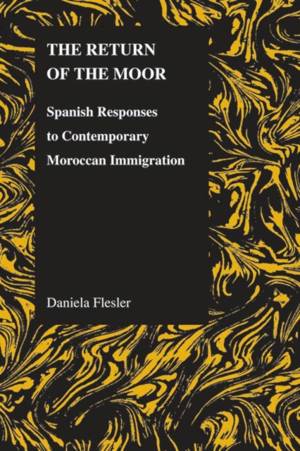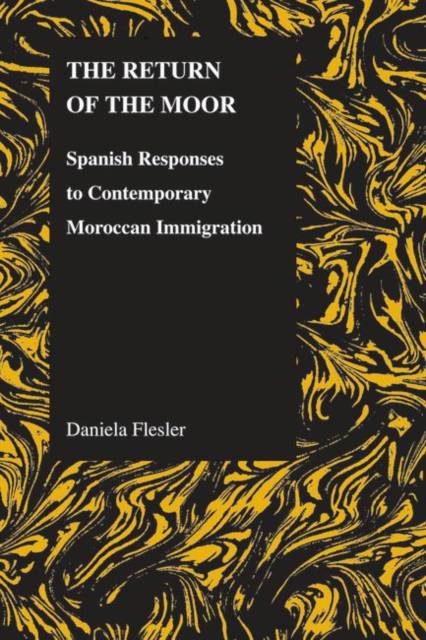
- Retrait gratuit dans votre magasin Club
- 7.000.000 titres dans notre catalogue
- Payer en toute sécurité
- Toujours un magasin près de chez vous
- Retrait gratuit dans votre magasin Club
- 7.000.0000 titres dans notre catalogue
- Payer en toute sécurité
- Toujours un magasin près de chez vous
Description
With the intense economic development and accelerated modernization experienced by Spain since the 1970s, and especially following its entrance to the European Economic Community in 1986, the country has undergone a rapid inversion in migratory patterns. After being an exporter of economic migrants for almost a century, in the last 20 years Spain has seen itself on the receiving end of immigration. Coinciding with a time when Spain is highlighting its belonging to Europe, the growing presence of Moroccan immigrants in particular confronts Spanish society with the repressed non-European, African and Oriental aspects of its national identity.
The Return of the Moorexamines the anxiety over symbolic and literal boundaries permeating the Spanish reception of these immigrants through an interdisciplinary analysis of social, fictional and performative texts. It argues that Moroccans constitute a "problem" to Spaniards not because of their cultural differences, as many claim, but because they are not different enough. Perceived as "Moors," they conjure up past ghosts that continue to haunt the Spanish imaginary, revealing the acute tensions inherent to Spain's tenuous position between Europe and Africa.
Spécifications
Parties prenantes
- Auteur(s) :
- Editeur:
Contenu
- Nombre de pages :
- 254
- Langue:
- Anglais
- Collection :
- Tome:
- n° 43
Caractéristiques
- EAN:
- 9781557534835
- Date de parution :
- 01-03-08
- Format:
- Livre broché
- Format numérique:
- Trade paperback (VS)
- Dimensions :
- 155 mm x 228 mm
- Poids :
- 417 g

Les avis
Nous publions uniquement les avis qui respectent les conditions requises. Consultez nos conditions pour les avis.






